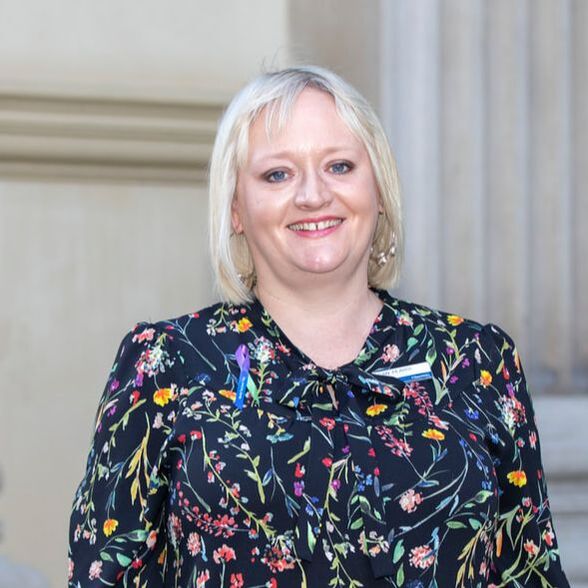|
One of the state’s leading music educators is pioneering research into how a teacher’s physiology and gender stereotypes might play a role in how boys are taught music, as part of her latest push to advocate for the subject and her students.
Anglican Church Grammar School (Churchie) Specialist Senior Music teacher, Meagan Pearse, who was part of a team which wrote Queensland’s 2013 Music Syllabus and is now one of the lead writers of the new Music Extension Syllabus, lives and breathes music. She even has musical notation on the soles of her shoes. |
|
Her exceptional leadership at her school and state-wide is one of the reasons she is a finalist in this year’s Queensland College of Teaching TEACHX Excellence in Teaching Award.
Ms Pearse undertook a Master of Educational Leadership program partly to learn how to talk with principals and deputy principals to help improve the value placed on music education. “I have always been an advocate for the study of music to enhance academic success; it provides us with an avenue for communication, builds resilience and confidence and improves organisation just to name a few. In addition, neuroscience continues to show that throughout adolescence learning music helps the brain develop its ability to function more efficiently,” she said. Having played a musical instrument from every family except brass, having taught in all-boys schools for years and being a PhD student herself, Ms Pearse has an in-depth knowledge of how best to teach boys, but she is always pushing to learn more. “Boys need to know why they are doing it,” Ms Pearse said. “They need to believe that you know what you are doing and you need to respect them and show an interest in their lives. They are very relationship focussed … I have found that if boys don’t trust and respect you, they disengage.” Ms Pearse uses a variety of strategies to engage students, including flipped learning and “How to” videos, which she is also embedding in OneNote for all of Churchie’s music teachers. She also uses ‘the reverse chronology approach’. “We start with the music of their generation and move backwards. The interesting thing about music, is that what we may think is new, is actually an innovation from a long time ago. Knowing about the history of music and how current music has been influenced by it challenges boys to apply a variety of techniques and devices to their own work,” she said. This term the Year 9s are looking at Aussie Rock. Ms Pearse said her PhD study was not about whether males or females taught boys better, but about awareness of how teacher physiology and gender stereotypes may influence the pedagogy of male and female teachers differently, and how they engage boys in music-making. As part of her research she is also hoping to gain insight into the psychological pressures facing adolescent boys, especially in the lead-up to the return of external exams in Queensland. Having a teacher who is also a curriculum writer is an advantage, she said. “I have travelled the state to present to teachers how to implement the syllabus … I understand the syllabus and believe in the importance of sharing knowledge with my colleagues across the state; I understand the premise and the reasons for it and as such, I know exactly what the students are required to do in order to achieve success,” she said. As a finalist, Meagan received $500 for professional development. |

